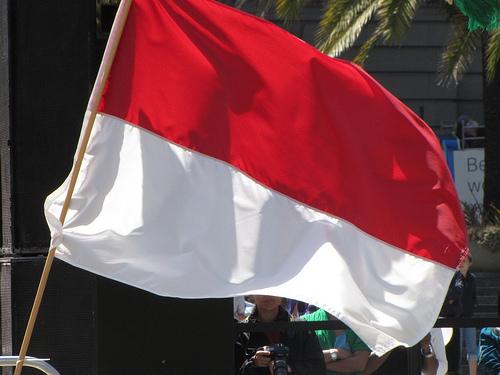
Indonesia taking modest steps for the road to fiscal discipline: Moody's
Small steps, but they've a big impact.
Indonesia’s House of Representatives’ Budget Committee has recently approved a draft budget that reduces the fiscal deficit for 2015 to 2.2% of GDP from Moody's projection of a 2.6% shortfall this year.
According to a release from Moody's, the approval came two days after the committee cut 2015 energy subsidies to IDR344.7 trillion ($34.5 billion) from IDR350.3 trillion in the 2014 budget.
These steps are credit positive for Indonesia because they improve the sovereign’s prospects of narrowing its deficit. Moreover, although the steps are modest in economic terms, they signal a political shift toward greater fiscal discipline because they will reverse five consecutive years of increases in energy subsidies and a widening budget deficit since 2011.
Here's more from Moody's:
Reversing rising subsidy costs will be instrumental in shrinking Indonesia’s budget deficit. Combined with robust demand for fuel within the context of strong economic growth, the government’s policy of subsidizing fuel and electricity consumption has strained public finances. Despite energy tariff hikes over the past year, subsidy costs have continued climbing as artificially low prices prop up demand.
Indeed, the government forecasts fuel subsidies alone to be 17.4% higher this year than in 2013, which contributes to our projection for a fiscal deficit of 2.6% of GDP this year, up from last year’s deficit of 2.3% and ever closer to the government’s cap of 3.0%.
Inflationary pressures have recently eased, providing room for further subsidy reforms. Annual consumer price inflation has been declining and fell below 4% in August, which is less than the 4.5%-5.5% target range set by Bank Indonesia, the country’s central bank, and down from a peak of 8.2% in January.
In an initial draft of next year’s budget, the outgoing Indonesian government had proposed increased energy subsidies of IDR363.5 trillion in 2015. Following consultation with the incoming administration’s transition team, the latest budget proposal instead incorporates a reduction in subsidy spending, with the bulk of the savings coming from electricity tariff hikes. The draft budget is due to be approved by the wider legislature this week.
President-elect Joko Widodo pledged during the election campaign to eliminate fuel subsidies within four years.
Since winning the vote, Mr. Widodo has tried to persuade incumbent President Susilo Bambang Yudhoyono to raise the price of subsidized fuel before he leaves office in October, and has signalled that he would be willing to take such action.
A senior member of the transition team recently said that the government would implement increases in fuel prices as soon as November. The government controls the price of motor gasoline, automotive diesel oil, kerosene and liquefied petroleum gas.
Nonetheless, the lower budget allocation for subsidies currently remains unaccompanied by concrete plans for increasing fuel prices.
Instead, the relative restraint comes from an assumption that consumption will be limited to 46 million kiloliters.
Moreover, the 2015 budget gives the Widodo administration scope to increase budgeted spending on fuel subsidies with lawmakers’ consent if consumption exceeds the limit.
Besides inflating fiscal spending, high demand for fuel, supported by government subsidies, has also contributed to the deterioration of the country’s current-account balance, which registered a deficit of 3.3% of GDP last year from several consecutive years of surplus prior to 2012.
Indonesia’s twin deficits increased the sovereign’s vulnerability to a selloff in emerging-market assets last year after the US Federal Reserve signalled a phasing out of monetary easing.
The government’s steps to trim subsidies and reduce the budget deficit would not only bolster Indonesia’s credit profile, but would reassure non-resident investors, who hold more than one third of the sovereign’s local-currency debt.
























 Advertise
Advertise










